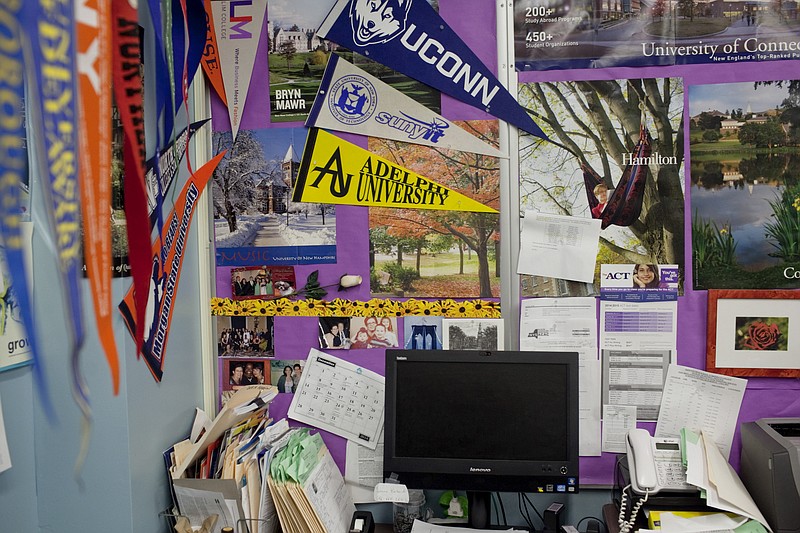Within days or weeks, the Supreme Court is going to render a decision on the future of affirmative action in higher ed. If things go as expected, conservatives will be cheering as these policies are struck down — and progressives will be wailing.
But maybe we can all take this moment to reimagine the college admissions process itself, which has morphed into one of the truly destructive institutions in American society.
The modern college admissions era was launched over half a century ago with the best of intentions — to turn finishing schools for the Protestant establishment into talent factories for all comers. But in the end, the elite universities merely exchanged one privileged elite for another. Today, you don't need bloodlines stretching back to the Mayflower to have a decent shot at getting into an elite school, but you do need to be born into a family with the resources to make lavish investments in your early education.
In 2017, research led by Raj Chetty found that students from families in the top 1% of earners were 77 times as likely to get admitted into the Ivy League than students from families making less than $30,000 a year. In that same year, students from the top income quintile were 16 times more numerous at the University of North Carolina, a state school, than students from the bottom quintile.
We now have whole industries that take attendance at an elite school as a marker of whether they should hire you or not. So the hierarchies built by the admissions committees get replicated across society. America has become a nation in which the elite educated few marry one another, send their kids to the same exclusive schools, move to the same wealthy neighborhoods and pass down disproportionate economic and cultural power from generation to generation — the meritocratic Brahmin class.
And, as Michael Sandel of Harvard has argued, the meritocratic culture gives the "winners" the illusion that this sorting mechanism is righteous and inevitable and that they've earned everything they've got.
And then we sit around wondering why Trumpian populists revolt.
In 2018, organizational psychologist Adam Grant wrote a powerful essay for The New York Times making the point that "academic excellence is not a strong predictor of career excellence. Across industries, research shows that the correlation between grades and job performance is modest in the first year after college and trivial within a handful of years."
We could have chosen to sort people on the basis of creativity, generosity or resilience. We could have chosen to promote students who are passionate about one subject but lag behind in the other subjects (which is how real-life success works). But instead, we created this academic pressure cooker that further disadvantages people from the wrong kind of families and leaves even the straight-A winners stressed, depressed and burned out.
For the past few decades, Richard D. Kahlenberg, the author of "The Remedy: Class, Race and Affirmative Action," has been arguing that we should replace the race-based system of affirmative action with a class-based system.
His proposal, to give preference to applicants from economically disadvantaged families, would address a core inequality in society. As Kahlenberg wrote in The Economist in 2018, social science research "finds that today, being economically disadvantaged in America poses seven times as large an obstacle to high student achievement as does race."
Maybe this could be a moment when we finally step back and acknowledge that the elite meritocracy has spiraled out of control. It's ridiculous that we have built a culture in which people make fine status distinctions among Princeton, Northwestern and Penn State as if they were 18th-century courtiers arguing over which aristocratic family had the grandest name.
It's ridiculous that we've built a system that overvalues the sort of technocratic skills these universities cultivate and undervalues the social and moral skills that any healthy society should value more.
It's sad that we've ended up with an educated elite that doesn't know much about the rest of America and doesn't seem notably more competent than the elites that preceded it.
If the Supreme Court rips off the affirmative action Band-Aid, maybe we can address the underlying wounds.
The New York Times
